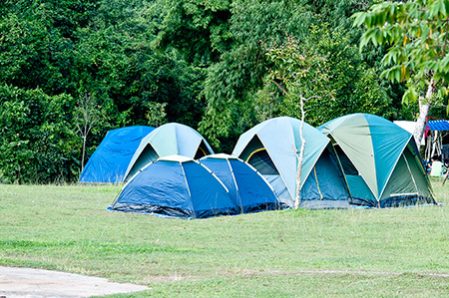Camping is recognized as a valuable way in which participants can experience new and natural environments in a small group, enabling the development of social and physical skills. Camping is an experience providing for creative, sporting, active recreational and educational opportunities for a group living in the outdoors. Trained leadership with resources from the natural environment contributes to each participant’s mental, physical, and social growth.
The camping experience provides a range of unique opportunities to develop new physical, social and intellectual skills and abilities. These benefits have been recognized by many individuals and groups who have developed resources and opportunities for people to participate in camping experiences. Each camp has its own aims and purposes that are met through the organized camping program. The Australian Camps Association can provide a list of accredited camp sites accredited by the Australian Tourism Accredited Program (ATAP) within Australia at the following site: www.auscamps.asn.au
By being accredited the campsite and program has gained endorsement from the Department of Education and Early Childhood Development (DEECD), that recognizes that the businesses have met industry standards within the sector.
The involvement of people with disabilities in camping programs enables them to participate in sports, games, physical activities, and arts and crafts activities, and provides for increased self-confidence, increased levels of fitness and opportunities to extend social skills.
For camping activities, people with disabilities may choose to operate as a common group, making use of programs and facilities that are equipped to accommodate people with disabilities. These camping experiences give them the opportunity to participate with other people with disabilities and to develop arrange of skills including an understanding of the motivations and abilities of their colleagues.
The social aspects of these camps are very beneficial in the development of social and group interaction skills. Often people with disabilities are first introduced to camping through a segregated experience. Once confidence and a range of social skills and physical abilities have been developed, they go onto the integrated camping experience and participate in community camps.
Camping experiences for people with disabilities can be seen as a sequential process by which the participant is introduced to a range of camping options and through these options develop a range of independence skills and growth in confidence. The sequential process also enables the participant to integrate successfully into community camping programs that have the facilities to cater for people with disabilities.
The leaders play a significant role in all aspects of the camp and their knowledge and experience in camp activities and group facilitation is important. In preparation for the camp it is useful for leaders to have some knowledge about the camp location, facilities and resources. The type of environment in which a camp is located will have a significant bearing on the camp activities. To know the resources at the campsite and in the local environment will assist in preparing activities at the camp.

